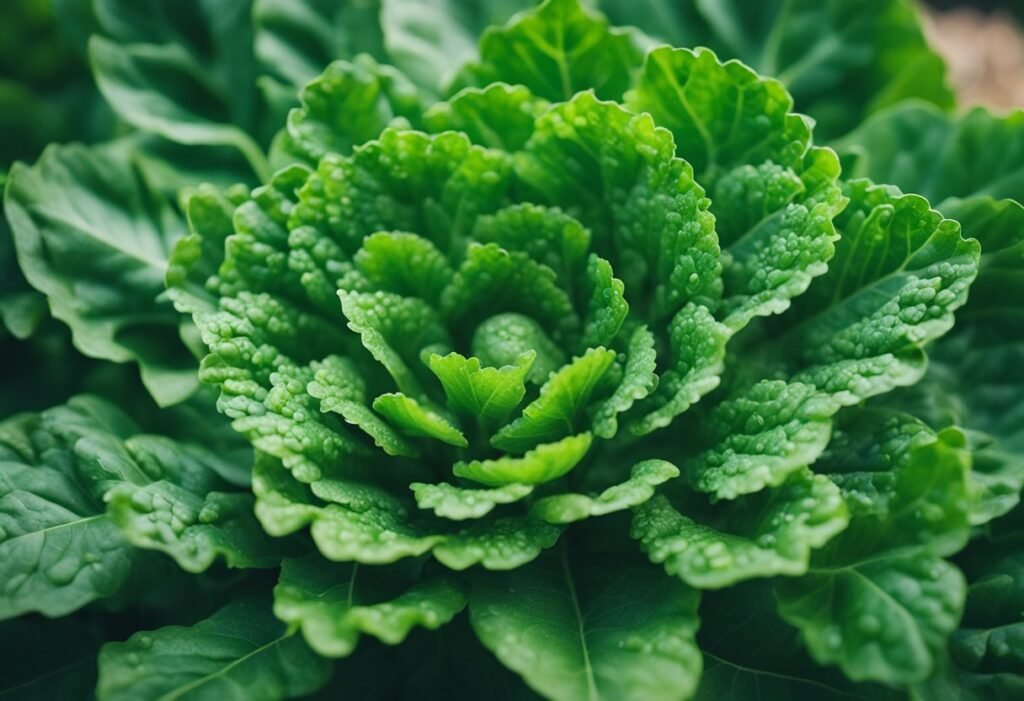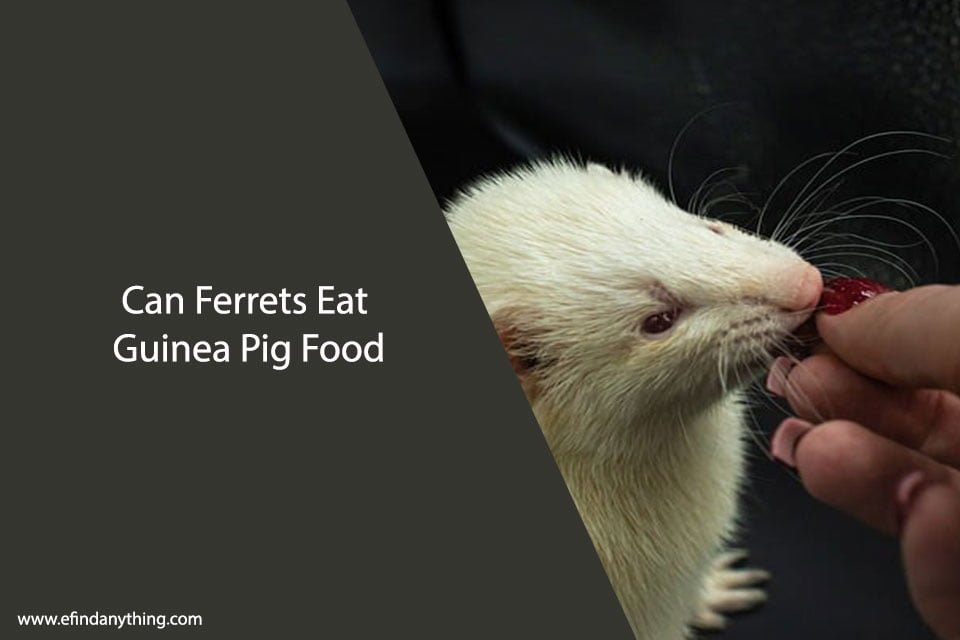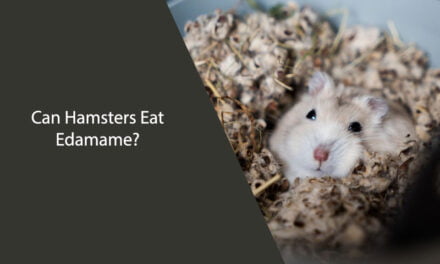Chinchillas are adorable and delicate creatures that require a balanced diet to maintain their health. As such, it’s important to know what foods are safe and healthy for them to eat. One vegetable that is often debated among chinchilla owners is kale. Can chinchillas eat kale?

Kale is a leafy green vegetable that is packed with vitamins and minerals, making it a popular choice for human health. However, when it comes to chinchillas, the answer is not so straightforward. While kale is not toxic to chinchillas, it is not recommended as a regular part of their diet. In fact, feeding kale to your chinchilla in large quantities can cause digestive issues and lead to diarrhea.
Table of Contents
Understanding Chinchillas’ Dietary Needs
Chinchillas are herbivores that require a diet high in fiber and low in fat and sugar. Their digestive system is sensitive, and they are prone to digestive problems if their diet is not balanced. Therefore, it’s crucial to understand their dietary needs and provide them with a proper diet to keep them healthy.
Hay
Hay is an essential part of a chinchilla’s diet. Timothy hay is the best type of hay for chinchillas as it’s high in fiber and low in protein and calcium. It helps maintain their digestive system and keeps their teeth healthy. Chinchillas should have access to hay at all times.
Pellets
Pellets are another important part of a chinchilla’s diet. They provide essential nutrients and vitamins that hay alone cannot provide. However, it’s important to choose pellets that are specifically made for chinchillas and not for other small animals like rabbits or guinea pigs. Chinchilla pellets should be low in fat and sugar and high in fiber.
Vegetables and Fruits
Chinchillas can eat a variety of vegetables and fruits in moderation. However, it’s important to introduce new foods slowly and in small quantities to avoid digestive problems. Kale is a good source of vitamins and minerals, but it should be given in moderation due to its high calcium content, which can lead to bladder stones.
Water
Chinchillas should have access to clean, fresh water at all times. Water bottles are recommended over bowls to prevent contamination and spillage.
In conclusion, chinchillas require a balanced diet of hay, pellets, and vegetables/fruits in moderation. It’s important to choose high-quality food specifically made for chinchillas and to introduce new foods slowly and in small quantities. Providing access to clean, fresh water is also crucial for their overall health.
The Nutritional Value of Kale

Kale is a leafy green vegetable that is considered to be one of the healthiest foods on the planet. It is packed with essential vitamins and minerals that are important for maintaining good health. In this section, we will discuss the nutritional value of kale.
Vitamins and Minerals
Kale is an excellent source of vitamins A, C, and K. It also contains significant amounts of vitamins B6 and B9 (folate), as well as minerals such as calcium, potassium, and magnesium.
Antioxidants
Kale is rich in antioxidants, which are important for protecting the body against damage from harmful free radicals. The antioxidants in kale include carotenoids, flavonoids, and vitamin C.
Fiber
Kale is a good source of dietary fiber, which is important for maintaining healthy digestion and preventing constipation. A single cup of kale contains around 3 grams of fiber.
Calories
Kale is a low-calorie food, with only around 33 calories per cup. This makes it an excellent choice for those who are trying to lose weight or maintain a healthy weight.
Protein
While kale is not a significant source of protein, it does contain small amounts of this essential nutrient. A single cup of kale contains around 2.9 grams of protein.
In summary, kale is a highly nutritious food that is packed with essential vitamins, minerals, and antioxidants. It is also low in calories and a good source of dietary fiber. Incorporating kale into your diet can provide a range of health benefits and support overall good health.
Can Chinchillas Eat Kale?
Kale is a leafy green vegetable that is often considered a superfood due to its high nutrient content. However, when it comes to chinchillas, kale should be given in moderation or avoided altogether.
While kale is not toxic to chinchillas, it is high in calcium and oxalates. Too much calcium can lead to bladder or kidney stones, and oxalates can interfere with the absorption of calcium and other minerals. Additionally, kale is also high in fiber, which can cause digestive issues for chinchillas if they consume too much of it.
If you do choose to feed your chinchilla kale, it should be given as an occasional treat in small amounts. A good rule of thumb is to offer kale no more than once a week and in a quantity that is roughly the size of your chinchilla’s paw.
It is important to note that chinchillas have sensitive digestive systems, and introducing new foods too quickly can cause digestive upset. If you decide to introduce kale to your chinchilla’s diet, do so gradually and monitor their behavior and stool for any signs of discomfort or illness.
In summary, while kale is not toxic to chinchillas, it should be given in moderation due to its high calcium, oxalate, and fiber content. As always, consult with your veterinarian before making any significant changes to your chinchilla’s diet.
Potential Risks of Feeding Kale to Chinchillas
While kale is a nutritious vegetable for humans, it may not be suitable for chinchillas. Here are some potential risks of feeding kale to chinchillas:
- High Calcium Content: Kale is high in calcium, which can be harmful to chinchillas. Too much calcium can lead to bladder stones or other urinary tract problems. Chinchillas require a diet low in calcium, so feeding them kale regularly may not be the best idea.
- High Oxalate Content: Kale also contains oxalates, which can bind to calcium and form crystals in the urinary tract. This can cause discomfort and pain for chinchillas. Feeding kale in moderation may be okay, but too much can lead to health problems.
- Gas and Bloating: Kale is a cruciferous vegetable, which means it can cause gas and bloating in chinchillas. This can be uncomfortable for them and may lead to digestive issues.
- Pesticide Residue: Kale is often sprayed with pesticides, which can be harmful to chinchillas. Even if you wash the kale thoroughly, some residue may still remain. It’s best to avoid feeding kale to chinchillas unless you can guarantee that it’s organic and pesticide-free.
Overall, while kale may seem like a healthy option for chinchillas, it’s important to consider the potential risks before feeding it to them. There are other vegetables that are lower in calcium and oxalates and may be better suited for chinchillas.
Healthy Alternatives to Kale for Chinchillas
When it comes to feeding chinchillas, variety is key. While kale is a nutritious option, it’s important to offer a range of healthy foods to ensure your chinchilla gets all the nutrients they need. Here are some healthy alternatives to kale that you can add to your chinchilla’s diet:
Bok Choy
Bok choy is a member of the cabbage family and is a great source of vitamin C and calcium. It’s also low in oxalates, which can be harmful to chinchillas in large amounts. Chop up some bok choy and offer it to your chinchilla as a tasty and nutritious snack.
Endive
Endive is a leafy green vegetable that is high in fiber and vitamin C. It’s also low in oxalates and can be a great alternative to kale. Chop up some endive and mix it in with your chinchilla’s hay or pellets for added nutrition.
Dandelion Greens
Dandelion greens are a great source of vitamin A and calcium, and they’re also low in oxalates. You can pick fresh dandelion greens from your yard or purchase them at a grocery store. Just be sure to wash them thoroughly before feeding them to your chinchilla.
Carrots
Carrots are a great source of vitamin A and fiber, and they make a tasty treat for chinchillas. Chop up some carrots into small pieces and offer them to your chinchilla as a snack. Just be sure to limit the amount of carrots you give them, as they are high in sugar.
In conclusion, while kale is a nutritious option for chinchillas, it’s important to offer a variety of healthy foods to ensure your chinchilla gets all the nutrients they need. Bok choy, endive, dandelion greens, and carrots are all great alternatives to kale that you can add to your chinchilla’s diet.
How to Introduce New Foods to Chinchillas
When introducing new foods to chinchillas, it’s important to do so gradually. Chinchillas have sensitive digestive systems, and sudden changes to their diet can cause gastrointestinal issues. Here are some tips on how to introduce new foods to your chinchilla:
- Start with small amounts: Begin by offering your chinchilla a small amount of the new food. This will allow you to monitor their reaction and ensure that they tolerate it well. You can gradually increase the amount over time if they continue to tolerate it.
- Offer a variety of foods: Chinchillas have a natural tendency to graze and eat a variety of foods. By offering a variety of fruits, vegetables, and hay, you can ensure that your chinchilla is getting a balanced diet.
- Monitor for signs of digestive issues: Keep an eye on your chinchilla’s stools after introducing new foods. Loose stools or diarrhea can be a sign of digestive issues, and you may need to discontinue the new food.
- Avoid sugary or fatty foods: Chinchillas are prone to dental issues and obesity, so it’s important to avoid sugary or fatty foods. Stick to fresh fruits and vegetables, and avoid processed or packaged foods.
- Consult with a veterinarian: If you’re unsure about whether a particular food is safe for your chinchilla, consult with a veterinarian who is knowledgeable about chinchilla care.
By following these tips, you can safely introduce new foods to your chinchilla and ensure that they are getting a healthy and balanced diet.

Conclusion
In conclusion, kale is a nutritious vegetable that can be beneficial for chinchillas when given in moderation. It is high in vitamin C, fiber, and other essential nutrients that can help support their health.
However, it is important to note that kale also contains calcium and oxalates, which can be harmful to chinchillas in large amounts. Therefore, it is recommended to feed kale to your chinchilla as an occasional treat rather than a regular part of their diet.
Additionally, it is important to ensure that the kale is fresh and free from any pesticides or chemicals that could be harmful to your chinchilla. Always wash the kale thoroughly before giving it to your pet.
Overall, while kale can be a healthy addition to your chinchilla’s diet, it should be given in moderation and as part of a well-balanced diet that includes other vegetables, hay, and pellets. As always, consult with your veterinarian if you have any concerns about your chinchilla’s diet or health.
Frequently Asked Questions
What vegetables are safe for chinchillas to eat?
Chinchillas can eat a variety of vegetables, but not all vegetables are safe for them. Some vegetables that are safe for chinchillas to eat include celery, carrots, collard greens, and kale. However, it is important to introduce new vegetables slowly to avoid digestive upset.
What are the best greens for chinchillas?
The best greens for chinchillas include collard greens, kale, and parsley. These greens are high in nutrients that are important for chinchillas’ health.
Can chinchillas eat fruit?
Chinchillas can eat some types of fruit, but it should be given in moderation. Fruits that are safe for chinchillas include apples, bananas, and blueberries. However, fruits are high in sugar and should be given sparingly.
Can chinchillas eat raisins?
Raisins are not recommended for chinchillas. They are high in sugar and can cause digestive issues.
Are carrots a good food choice for chinchillas?
Carrots are a good food choice for chinchillas in moderation. They are high in sugar, so they should be given sparingly.
Is kale a healthy food option for chinchillas?
Kale is a healthy food option for chinchillas. It is high in nutrients that are important for their health. However, kale should be introduced slowly to avoid digestive upset.





